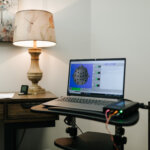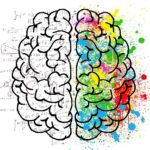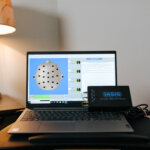Are You Or Your Child Struggling With The Effects Of ADHD?
Is living with Attention Deficit Hyperactivity Disorder (ADHD) negatively impacting your child’s self-confidence? Has a lack of focus at school made it difficult for them to reach their full potential? Or are you an adult with ADHD who can’t seem to meet your career goals due to a problem with following through on your tasks and assignments?
 If your child has ADHD, school can be a challenging environment for them. If they are easily bored and have difficulty paying attention—or prone to mood swings, fidgeting, talking in class, and impulsive or aggressive behavior—it could negatively impact their educational experience and batter their self-esteem. Because their brain is wired differently, traditional ways of learning are more difficult, leading to frustration, self-doubt, and the false perception that they’re not as smart as other kids.
If your child has ADHD, school can be a challenging environment for them. If they are easily bored and have difficulty paying attention—or prone to mood swings, fidgeting, talking in class, and impulsive or aggressive behavior—it could negatively impact their educational experience and batter their self-esteem. Because their brain is wired differently, traditional ways of learning are more difficult, leading to frustration, self-doubt, and the false perception that they’re not as smart as other kids.
If you’ve tried medication to help manage your child’s symptoms, you might be coming to terms with its unpleasant side effects. Your child might become so zombie-like, irritable, or moody on medication that you let them skip weekends just to give them a break.
You Might Be Facing Your Own Challenges With ADHD
Perhaps you have lived with ADHD your whole life, and while you should be acknowledged for managing your symptoms all this time, you feel like it’s holding you back from the goals you want to achieve. If you struggle to finish work projects or become fixated on one thing at the expense of other deadlines, your ADHD may be preventing you from the career advancement you’re seeking. Or maybe you’re dealing with other symptoms—such as racing or frantic thoughts, losing track of time, or sleep disruptions—and looking for solutions.
Fortunately, therapy that incorporates neurofeedback and Eye Movement Desensitization Reprocessing (EMDR) can be particularly effective in helping manage the symptoms of ADHD. What’s more, neuro counseling can provide beneficial results without the need for medication.
ADHD Usually Starts In Childhood And Stays With Us Through Adulthood
We have all either experienced ADHD first-hand or know someone who lives with ADHD, whether it’s a loved one, friend, or coworker. Unsurprisingly, ADHD is the most commonly occurring neurodevelopmental problem encountered in childhood. [1] Although ADHD is generally recognized and diagnosed in childhood, up to 90 percent of those diagnosed in childhood continue to experience its symptoms into adulthood. [2]
The causes of ADHD can be attributed to several factors, including genes, brain injuries, premature birth, prenatal exposure to substances, including alcohol and nicotine, and other environmental toxins. While ADHD impacts executive function and can interfere with learning, such as attention span, focus, and self-regulation, there is no evidence to support that ADHD necessarily correlates with a person’s IQ. [3]
 Recognizing Neurodiversity
Recognizing Neurodiversity
Although historically, an ADHD diagnosis has carried a negative stigma, recently, that has started to change. More and more, schools and workplaces are recognizing what it means to be neurodivergent, a term that simply acknowledges that some of us think and interact with the world differently than others. What’s more, there are some qualities that come with ADHD—including the ability to hyperfocus, think outside of the box, take risks, and bring energy to a subject—that can be beneficial in performance and function.
Currently, the most popular option for managing ADHD symptoms is medication. However, these medications come with a host of side effects that many with ADHD want to avoid, especially when contemplating this option for a child.
If you prefer an effective, affordable, medication-free approach to managing ADHD, consider neurofeedback and EMDR therapy. Utilizing these non-invasive modalities can help you tap into the resilience of the brain for long-lasting results with no side effects.
By Utilizing Neurofeedback And EMDR Therapy, You Can Effectively Manage The Symptoms Of ADHD
For children and adults with ADHD, traditional counseling can be hit or miss. If the approaches used in talk therapy don’t directly address brain function, then your ADHD symptoms might not noticeably decrease. It can be equally frustrating to rely on medications that can cause numerous negative side effects.
By offering evidence-based therapy instead of medication to help manage the symptoms of ADHD, Authentic Brain Solutions can help you or your child live more successfully with ADHD. Utilizing EMDR and neurofeedback to gently soothe the nervous system can improve emotional regulation, attention span, sleeping patterns, and executive function.
What To Expect In ADHD Therapy
As a therapist, I aim to create a space where you or your child will have an authentic connection with me. In our first ADHD counseling session, we will explore your goals and collaborate on a customized treatment plan based on what you hope to accomplish. It will be up to you to determine whether addressing your past experiences is important. If so, we can incorporate Cognitive Behavioral Therapy (CBT) and narrative techniques into your ADHD treatment plan. Ultimately, you are the expert in what you want to achieve with counseling and whether neurofeedback and/or EMDR will meet those goals.
 Neurofeedback And EMDR Therapy For ADHD
Neurofeedback And EMDR Therapy For ADHD
I offer brain-based solutions, including Eye Movement Desensitization Reprocessing (EMDR) and IASIS Microcurrent Neurofeedback (IASIS MCN). Unlike traditional talk therapy techniques that focus on helping clients recognize and change unhelpful thoughts, IASIS MCN and EMDR improve brain function at its core, which in turn can help reduce the symptoms of ADHD. These modalities are gentle and non-invasive, generally resulting in a quicker resolution to the problems being experienced.
IASIS MCN and EMDR are evidence-based modalities for ADHD, with clients reporting sustained improvement after a relatively short number of treatments. “With over 20,000 studies in the USA alone, bio- and neurofeedback are now scientifically well-documented and secured procedures that have shown a very high level of treatment success. The evidence base for Attention Deficit Hyperactivity Disorder (ADHD) has been raised to the highest evidence level 5 since 2016.” [3]
Compared with traditional neurofeedback, which can take up to 60 sessions before seeing results that may only last for 3-5 years, the IASIS MCF approach typically only takes 12-20 sessions to achieve long-lasting results. Another advantage of IASIS MCN over traditional neurofeedback is that, rather than having to stop the medication before getting sessions underway, you can stay on your prescribed ADHD medication. Many clients report working with their prescribing physician to gradually lower or eliminate the use of prescription medication to manage their ADHD.
Utilizing the right approach to ADHD therapy can make all the difference. With effective support, you can harness the potential of your amazingly capable and adaptive brain, leading to better grades or job performance, closer relationships, and more confidence.
But You May Wonder Whether ADHD Therapy Is Right For You…
Other than taking medication indefinitely, what other treatment options are available for ADHD?
Understandably, you may want to explore other ways of addressing ADHD besides being prescribed medication. After all, medication can include unwanted side effects, such as feeling zombie-like, flat, or irritable. In my experience as a neurofeedback therapist, the most successful approaches to address ADHD incorporate Eye Movement Desensitization and Reprocessing (EMDR) and IASIS Microcurrent Neurofeedback (IASIS MCN). EMDR and IASIS MCN are medication-free, non-invasive options for ADD therapy for both adults and children that can promote a deeper sense of tranquility and peace while reducing the frequency and intensity of symptoms.
How long does Attention Deficit Hyperactivity Disorder therapy usually take before I experience improvement?
While everyone is different and every brain reacts differently to neurofeedback therapy for ADHD, clients generally report improvement within 12-20 sessions. Initially, we will meet 1-2 times per week for 30-45 minutes per session. ADHD therapy for children and adults can sometimes yield improvements within 1-3 sessions, but in other instances, it may take longer to see results.
Approximately how much does neurofeedback therapy for ADHD typically cost?
Ensuring that ADHD therapy is affordable to my clients is important to me. That’s one reason I was particularly drawn to IASIS Microcurrent Neurofeedback. Not only is IASIS MCN more affordable than traditional neurofeedback, but most clients report sustained results after completing 12-20 sessions.
The Brain Has The Potential To Heal Itself
Let’s work together to create the optimal environment for your brain to function. If you would like to learn more about ADHD therapy, please call or text 832-819-1708 or visit our contact page.
Contact
Recent Blog Posts



References:
[1] https://www.nimh.nih.gov/health/statistics/attention-deficit-hyperactivity-disorder-adhd#:
[2] https://pubmed.ncbi.nlm.nih.gov/34384227/
[3] https://journals.sagepub.com/doi/abs/10.1177/1087054714554933
[4] https://microcurrentneurofeedback.com/clinical-efficacy-of-iasis-micro-current-neurofeedback/

